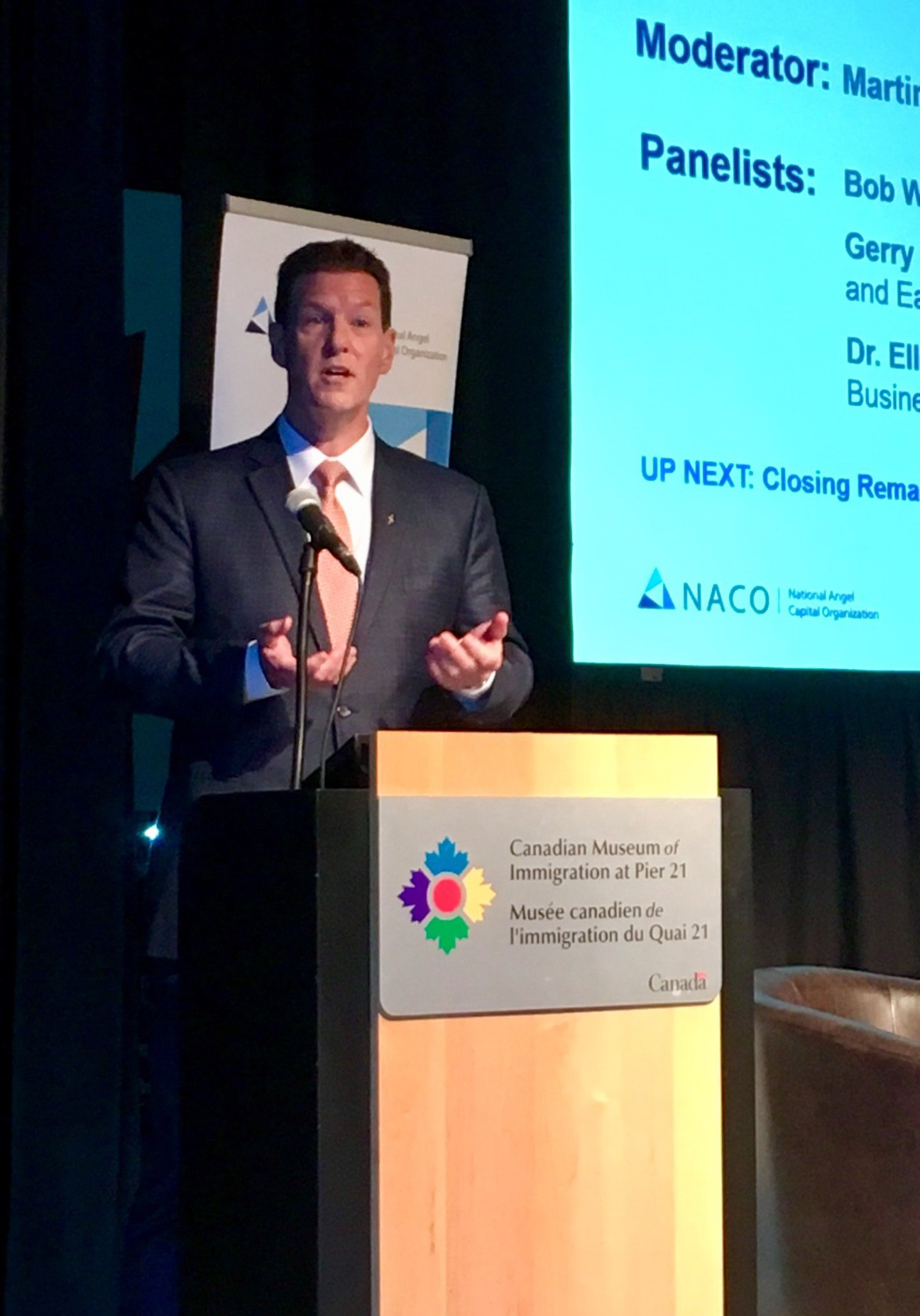“Structured around providing value-adding services to high-potential startup and scale-up ventures, wherever they are located in Canada, and providing a ‘soft landing’ for international bioscience ventures seeking to start-up or establish themselves in, or expand into, Canada, Emergence boasts a portfolio of clients that stretches from Vancouver, British Columbia to St. John’s, Newfoundland – and around the world,” says Emergence director, Martin Yuill, writing in the 2018-2019 Edition of LifeSigns: Life Sciences Legal Trends in Canada.
You can read the full article here!
 LifeSigns is published annually by law firm, Borden Ladner Gervais LLP (BLG).
LifeSigns is published annually by law firm, Borden Ladner Gervais LLP (BLG).
The release of this year’s report was timed to coincide with the opening of the 2018 BIO International Convention on June 04 in Boston.
“This is the 5th Annual edition of LifeSigns – Canada’s leading report on life sciences legal trends in Canada,” says Kira Pejemsky, BLG’s Director, Business Development Practice Group.

Emergence Director, Martin Yuill: “the impact of the Emergence virtual incubator model has been striking”
This year’s report covers notable trends including information on the cannabis sector as well as updates in the areas of intellectual property, regulatory affairs, privacy and cybersecurity, corporate commercial and capital markets.
BLG is Canada’s largest independent law firm and their Life Sciences group is actively engaged in all facets of the commercialization of life science technologies in Canada.
In “Commercializing Next Generation Innovation”, Yuill says that “the impact of the Emergence virtual incubator model has been striking.”
Over the last year, several PEI companies have experienced unprecedented exits, acquisitions and investment. “Not insignificantly, all have been clients of the Emergence incubator program, having taken advantage of the program’s core service pillars,” Yuill points out.
 Many have attracted investment from large global corporations.
Many have attracted investment from large global corporations.
One direct outcome: Croda’s recent acquisition of Nautilus Biosciences has resulted in the creation of a Croda “Centre of Innovation for Marine Biotechnology” on the campus of the University of Prince Edward Island in Charlottetown.
Reflecting on the growth of the bioscience sector in Prince Edward Island, Yuill argues that this is the result of the success of an industry-led Cluster model, coordinated by the PEI BioAlliance.
Collaboration between all stakeholders plays a central role in how PEI successfully integrates concurrent research and innovation processes with a public-private-people partnership designed to help innovative startups commercialize potentially transformative technologies through a highly connected and integrated business ecosystem.
“Taking advantage of key local strengths, the growth in the PEI Bioscience Cluster is the story of helping entrepreneurs and innovators start and grow their ventures,” Yuill writes.
Today, the PEI Bioscience Cluster is comprised of 54 companies, eight research institutions, and several federal and provincial government partners.
The Cluster currently employs 1,600 highly skilled individuals. Private sector revenues exceed $240 million/annum, and annual R&D expenditures are more than $70 million.
The focus of the companies that make up the PEI Bioscience Cluster is largely centered around the research, development and commercialization of natural product chemistry and bioactive-based products for human, animal and fish health and nutrition.
Revenue sources include cosmetic ingredients, natural health products, feed additives, vaccines, diagnostics, and pharmaceuticals.
“Many of the companies that make up the PEI Cluster are early-stage pre-commercial ventures,” Yuill says. “This is something that we are proud of.”
“Already accounting for 45% of all new job creation across our sector, these ventures are being nurtured in a supportive startup culture which provides them with access to best-in-class mentorship, regulatory expertise, bio entrepreneurship education, skilled human resources through HR support services, shared infrastructure and supportive public policy.”
These companies are pioneering cutting edge innovations across the biotechnology spectrum, including “green” bio, “red” bio, and “blue” bio.
“These are the startups that are defining a future based on the interplay between software, hardware, materials, biologic systems, the cloud, artificial intelligence, augmented reality and data,” writes Yuill.
